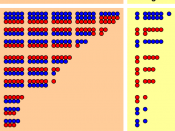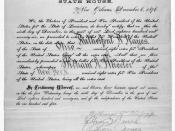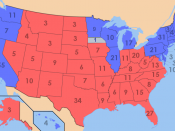The Electoral College system works well in most elections. However, the call for reform is heard after almost every election. There are three major weaknesses in the system that could affect the outcome of an election.
Winner take all is the main problem out of these three. If a candidate wins the largest number of popular votes in a state, that person receives all the state's electoral votes most of the time. In the rare case, a candidate will only receive part of the electoral votes. Critics argue that this system is unfair to those who voted for a losing candidate. For example, in 1992 more than 2 million Texans voted for Bill Clinton, but Clinton did not receive any of Texas's electoral votes. He received 2 million votes from the popular; however, he did not receive any of the electoral votes out of 32. 32 of the electoral votes can play a significant role in the election.
Sometimes, the candidate would only win by a margin vote like 1 or 2. That why many people are criticizing this system. Also the winner take all system makes it possible for a candidate who loses the popular vote to win the electoral vote. This usually happens when a candidate wins several large states by narrow margins. Totally, there were eighteen times in the American History. The first time was in the elections of John Quincy Adams in 1824. He only received 30.6% of the popular; however, he received most of the electoral votes, 84 votes. So he finally became the president. That is really often happened. The last time happened was the election in 2000. George W. Bush only received 47.9% of popular votes but he received 271 out of 538 electoral votes. So he satisfied the constitutional requirement, majority of...


